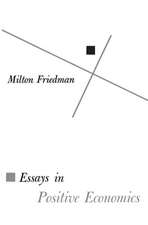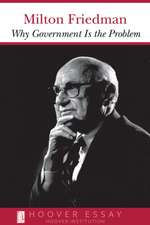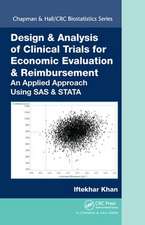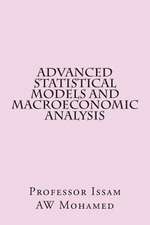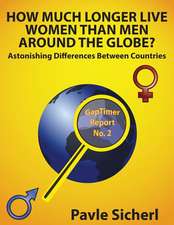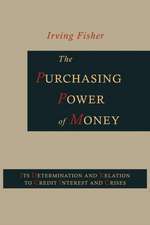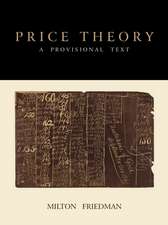A Theory of the Consumption Function
Autor Milton Friedmanen Limba Engleză Paperback – 27 apr 2015
Preț: 176.13 lei
Nou
Puncte Express: 264
Preț estimativ în valută:
33.71€ • 36.60$ • 28.31£
33.71€ • 36.60$ • 28.31£
Carte tipărită la comandă
Livrare economică 18-24 aprilie
Preluare comenzi: 021 569.72.76
Specificații
ISBN-13: 9781614278122
ISBN-10: 1614278121
Pagini: 258
Dimensiuni: 156 x 234 x 15 mm
Greutate: 0.44 kg
Editura: Martino Fine Books
ISBN-10: 1614278121
Pagini: 258
Dimensiuni: 156 x 234 x 15 mm
Greutate: 0.44 kg
Editura: Martino Fine Books
Descriere
2015 Reprint of 1957Edition. Full Facsimile of the original edition. Not reproduced with Optical Recognition Software. In this book Friedman developed the permanent income hypothesis (PIH). As classical Keynesian consumption theory was unable to explain the constancy of savings rate in the face of rising real incomes in the United States, a number of new theories of consumer behavior emerged. In his book, Friedman posits a theory that encompasses many of the competing hypotheses at the time as special cases and presents statistical evidence in support of his theory. "Friedman described Keynes's theory of a declining propensity to consume as 'very imaginative and thoughtful.' But in "A Theory of the Consumption Function" (1957), he demonstrated that while the hypothesis seemed to make psychological sense, it was empirically false. In relating income to propensity to consume, Keynes had erred in not distinguishing between 'transitory' and 'permanent' income. In fact, consumption does not decline as incomes generally rise. Economists across the political spectrum agreed with Friedman's refutation of Keynes...."--James A. Nuechterlein, Commentary


